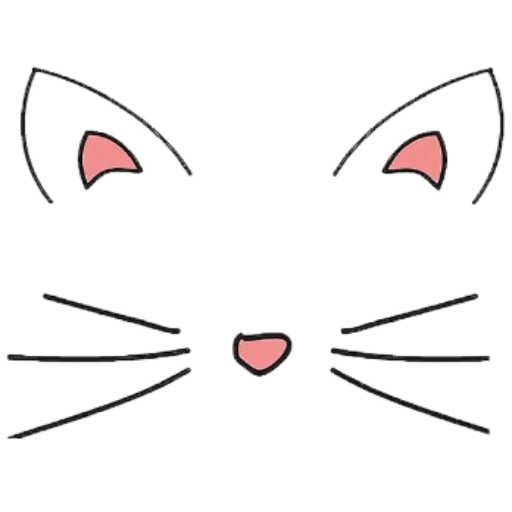The Purr-suit of Happiness: How Cats Enhance Human Joy and Well-being
- 9 Comments
In an increasingly fast-paced world, where stress and anxiety are as common as morning coffee, the purring presence of a cat offers a unique form of solace. As more studies explore the profound impact of animal companionship on human health, cats stand out as exceptional providers of joy and well-being, their mysterious allure and gentle demeanor making them ideal partners in the pursuit of happiness.
For centuries, cats have been cherished not only as companions but also as sources of emotional support. The instinctual bond between humans and felines is one backed by science. Recent research has shown that the simple act of petting a cat can release endorphins, the feel-good hormones, reducing stress and promoting a sense of calmness. The rhythmic sound of a cat’s purr is not just soothing; it has been linked to lowering blood pressure and even reducing the risk of heart disease.
Cats are distinct in their ability to sense human emotions. Their intuitive nature enables them to respond with the right amount of attention or space, adapting to the emotional needs of their human counterparts. In moments of sadness, a cat’s gentle nuzzle or silent companionship can be incredibly comforting, providing a non-judgmental presence that allows individuals to process their feelings without pressure or expectation.
The presence of a cat can also encourage mindfulness and present-moment awareness. Watching a cat bask in a sunbeam or play with a simple piece of string reminds us to slow down and appreciate the simple joys of life. This state of mindfulness can lead to increased levels of happiness and a reduction in anxiety, as individuals learn to appreciate the beauty in the mundane.
Moreover, the responsibility of caring for a cat can instill a sense of purpose and routine, which is particularly beneficial for those struggling with mental health challenges. The daily rituals of feeding, grooming, and playing with a cat provide structure and a sense of accomplishment. Cats, with their independent yet affectionate nature, offer companionship that doesn’t rely on constant attention, making them ideal for those who may need a balance between interaction and solitude.
Cats have also found their way into therapeutic settings, where their presence has been shown to aid in the healing process. Animal-assisted therapy programs frequently incorporate cats to help individuals cope with trauma, depression, and loneliness. The unconditional love and acceptance that cats offer can be transformative, helping individuals to build trust and regain confidence.
In homes, offices, and even universities, feline friends are becoming increasingly recognized for their ability to enhance well-being. They are being welcomed into workplaces as stress-relief companions, helping to create a more relaxed and productive environment. Universities have also embraced the calming effects of cats, hosting “cat cafés” or “feline therapy sessions” during exam periods to help students unwind.
As we continue to navigate the complexities of modern life, the role of cats in enhancing human happiness and well-being becomes ever more significant. Their quiet presence and endearing quirks remind us of the importance of connection, compassion, and care. In the purr-suit of happiness, our feline friends are more than just pets; they are partners in achieving a balanced, joyful life.

In an increasingly fast-paced world, where stress and anxiety are as common as morning coffee, the purring presence of a cat offers a unique form of solace. As more studies explore the profound impact of animal companionship on human health, cats stand out as exceptional providers of joy and well-being, their mysterious allure and gentle demeanor making them ideal partners in the pursuit of happiness.
For centuries, cats have been cherished not only as companions but also as sources of emotional support. The instinctual bond between humans and felines is one backed by science. Recent research has shown that the simple act of petting a cat can release endorphins, the feel-good hormones, reducing stress and promoting a sense of calmness. The rhythmic sound of a cat’s purr is not just soothing; it has been linked to lowering blood pressure and even reducing the risk of heart disease.
Cats are distinct in their ability to sense human emotions. Their intuitive nature enables them to respond with the right amount of attention or space, adapting to the emotional needs of their human counterparts. In moments of sadness, a cat’s gentle nuzzle or silent companionship can be incredibly comforting, providing a non-judgmental presence that allows individuals to process their feelings without pressure or expectation.
The presence of a cat can also encourage mindfulness and present-moment awareness. Watching a cat bask in a sunbeam or play with a simple piece of string reminds us to slow down and appreciate the simple joys of life. This state of mindfulness can lead to increased levels of happiness and a reduction in anxiety, as individuals learn to appreciate the beauty in the mundane.
Moreover, the responsibility of caring for a cat can instill a sense of purpose and routine, which is particularly beneficial for those struggling with mental health challenges. The daily rituals of feeding, grooming, and playing with a cat provide structure and a sense of accomplishment. Cats, with their independent yet affectionate nature, offer companionship that doesn’t rely on constant attention, making them ideal for those who may need a balance between interaction and solitude.
Cats have also found their way into therapeutic settings, where their presence has been shown to aid in the healing process. Animal-assisted therapy programs frequently incorporate cats to help individuals cope with trauma, depression, and loneliness. The unconditional love and acceptance that cats offer can be transformative, helping individuals to build trust and regain confidence.
In homes, offices, and even universities, feline friends are becoming increasingly recognized for their ability to enhance well-being. They are being welcomed into workplaces as stress-relief companions, helping to create a more relaxed and productive environment. Universities have also embraced the calming effects of cats, hosting “cat cafés” or “feline therapy sessions” during exam periods to help students unwind.
As we continue to navigate the complexities of modern life, the role of cats in enhancing human happiness and well-being becomes ever more significant. Their quiet presence and endearing quirks remind us of the importance of connection, compassion, and care. In the purr-suit of happiness, our feline friends are more than just pets; they are partners in achieving a balanced, joyful life.



9 thoughts on “The Purr-suit of Happiness: How Cats Enhance Human Joy and Well-being”
This insightful post highlights the comforting and joyful presence cats bring into our lives.
This article beautifully highlights the uplifting impact of feline companionship on our lives.
This insightful post highlights the wonderful ways in which feline companionship contributes to our overall happiness and well-being.
It’s lovely to see how the bond between humans and cats can positively impact our lives. Their calming presence and intuitive nature truly make them special companions.
This insightful post beautifully highlights the unique and comforting role cats can play in enhancing our well-being.
This insightful post highlights how cats can positively impact our lives through their calming presence and support.
This post beautifully highlights the comforting and therapeutic roles cats play in enriching our lives.
This post beautifully highlights the unique ways cats contribute to our joy and well-being.
Cats truly have a remarkable ability to bring peace and joy into our lives.